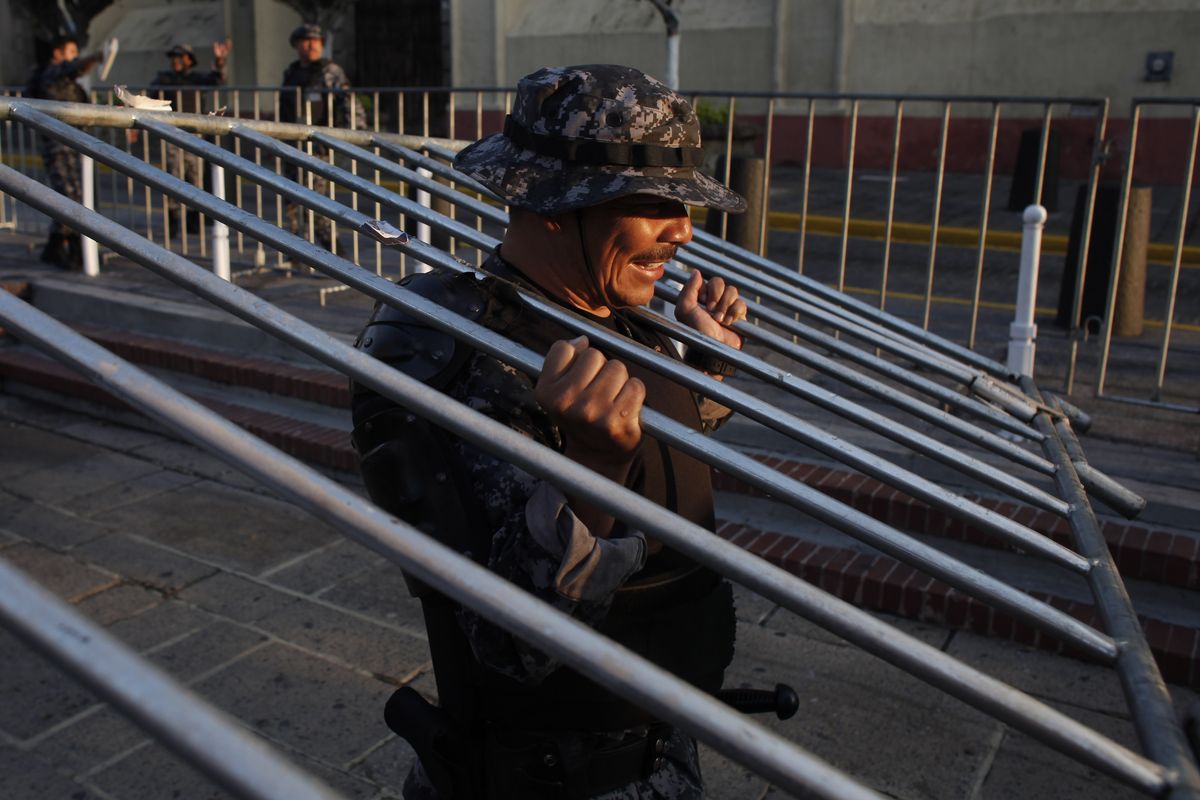Trade, drug wars, swine flu at fore of Mexico summit

GUADALAJARA, Mexico – President Barack Obama pressed for a new tone in the United States’ relationship with Mexico but found no immediate progress Sunday on the divisions between him and Mexican President Felipe Calderon over the pace of U.S. drug-fighting aid and a ban on Mexican trucks north of the border.
Obama kicked off his second trip to Mexico as president with a friendly 45-minute meeting with Calderon that touched on the vast trade relationship between their two countries, their cooperation on swine flu and the violent Mexican gangs dominating the drug trade on both sides of the border. Their talks came before the start of a lightning-quick three-way summit between the United States, Mexico and Canada.
Often called the “Three Amigos” summit, the meeting of Obama, Calderon and Canadian Prime Minister Stephen Harper began over dinner at a cultural institution in this town near the mountains. The summit’s formal talks, the fifth for the three countries, are taking place today, followed by a meeting-capping joint appearance before reporters at midday.
During the separate sit-down between Obama and Calderon, the Mexican leader raised his concerns about the speed of implementation of the United States’ three-year, $1.4 billion drug-fighting package known as the Merida Initiative. One $100 million installment is being delayed over rising concerns among some in Congress about the Mexican army’s abuses.
The U.S. law requires Congress to withhold some funding unless the State Department reports Mexico is not violating human rights in the process of its anti-cartel crackdown that started in 2006.
Obama told Calderon that human rights are a major priority for him, but also assured him that the State Department is working to prepare a report that recognizes all Mexico’s efforts to prevent abuses, said a senior administration official, who briefed reporters on condition of anonymity in order to more freely describe private meetings.
Drug violence has killed more than 11,000 people since Mexico launched its crackdown. Mexican cities are living essentially under siege, and the killings are spilling over the borders as far as Canada.
Calderon also quizzed Obama on his earlier promise to restore a canceled pilot program that had allowed Mexican truckers to travel into the United States, the official said.
The North American Free Trade Agreement requires the United States to grant Mexican trucks full access to its highways by January 2000, and a 2007 pilot program allowed some trucks. Facing opposition from U.S. labor unions and consumer groups, Obama signed a spending bill that included a ban on spending for the program.
Mexico retaliated by imposing tariffs on dozens of U.S. products ranging from fruit to washing machines.
Obama told Calderon that he would work “to try to move forward” but also said that Congress has “legitimate safety concerns” about Mexican trucks, the official said.
Outside the sprawling colonial-era building where they met in Mexico’s second-largest city, caravans of heavily armed federal agents patrolled the streets. Dozens of police carrying riot gear manned roadblocks meant to keep protesters away.
U.S.-Mexico relations went on a rollercoaster ride during the tenure of former President George W. Bush. While Obama has, like Bush, emphasized beefed-up border security, he has pledged to renew efforts to push through an immigration overhaul including a citizenship path for illegal immigrants.
And during his April visit, Obama made a welcome acknowledgment to Mexicans that Americans share the blame for violence south of border because of drug consumption and gun trafficking.
A major topic of discussion between Obama and Calderon – and for the three leaders today – will be the now-global swine flu epidemic believed to have started in Mexico in April just before Obama’s last trip. The two nations cooperated extensively on the flu outbreak. The United States earned points with its southern neighbor for not joining the countries banning flights, halting trade and taking other actions that Mexico considered unfairly punitive.
Obama, Calderon and Harper will look for ways to handle an expected new wave of cases during North America’s upcoming flu season. John Brennan, Obama’s chief homeland security aide, said it is as important to further link up health officials and ready vaccine and antiviral supplies as it is for the three leaders to publicly reinforce a determination not to panic when cases arise.
“We want to make sure that we do everything possible to ensure the continuation of commerce, transportation and trade between the three countries.”